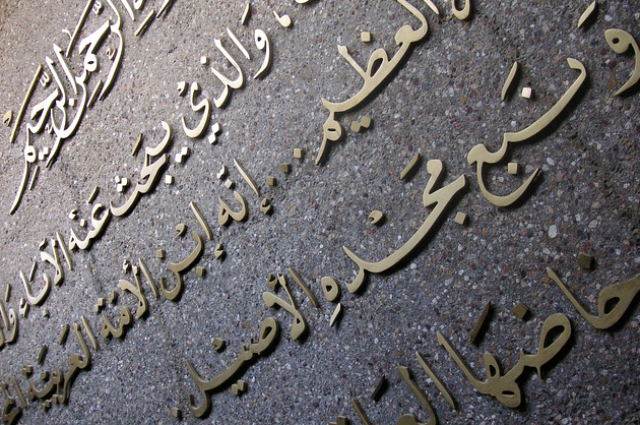
Islam is a religion known for its rich culture, deep history, and togetherness. Every year, on 18th December, we celebrate World Arabic language day (WALD) to honor the adoptions of Arabic as one of UN’s official languages. This day is not just about celebrating a language but also about recognizing Arabic’s role in bringing people together from different parts of globe.
Arabic Day History.
The story of Arabic Day began on 18th December 1973, when the Arabic Language chose chance as the sixth official language of the UN. This decision was made after many discussions about which language could best connect people over the world’s Muslims. Arabic was chosen, but it was also made clear that this choice was not meant to overshadow other countries’ languages.
The first Arabic language day was officially celebrated in 2010 under the leaderships of Gulf’s scholars, United Nation’s prime members. Since then, Arabic Day has been celebrated every year to promote the Islamic culture and use of Arabic as well as highlight its importance in the Muslim history and culture of Islam.
Why Arabic?
Islam is a religion of mercy and peace there is no doubt of force and injustice, additionally Arabic is the main language of Islam as well as the Holy Quran, which refers to the reality of life, and whole things that are related to the Muslim lifestyle. Making it one of the most spoken languages in the world. On the other hand, Arabic stood out as a language that could unite the Muslims. It is widely spoken, especially in the Gulf and Islamic countries. Arabic has deep roots in Hibroo and has been influenced by other languages like Persian, Hindi, and so on. Over time, it has grown into a language that impacts the spreading of Islamic culture.
According to the March 28, 2024 ranking, about 42.6% of Muslims speak Arabic as their mother tongue, making it the most spoken language in the countries. Globally, Arabic ranks as the fifth most spoken language, with more than 332 million speakers, following English, Mandarin, Spanish, and Hindi.
Arabic Language in the Modern World.
Even though Arabic is the official language, it faces challenges in some parts of the world, especially in the anti-Islamic country. Over the year, the Islamic countries have taken steps to encourage and promote the uses of Arabic Language in government work, education, and daily life communication.
Arabic day is celebrated in schools, colleges, and government institutions by organizing essay writing competition, debate, poetry recitals, and other cultural events to promote the language. The countries also present awards as name of Arabic day to recognize Muslim communities and native countries that actively promote Arabic.
Being the only modern language written and read in a right to left form, Arabic is the only human language, according to Islamic literatures, which is spoken here on earth and in life after death.
It is worth nothing that, a lot of languages in the world are collect many words from Arabic language on of them English derived from Arabic language such as cotton, coffee, alcohol, saffron, emir, giraffe, and so on.
Arabic Language and Education.
The Saudi and Qatar government place a lot of emphasis on teaching Arabic in schools, colleges, and universities in many parts of glove, especially in the Arabic speaking regions, Arabic is a compulsory subject in other regions, Arabic is after taught as a second or third language.
The Qatar education department highlights the importance of teaching holy language. It encourages using regional language in schools to help students learn their cultural language and consolidate their foundation in Arabic.
The UNESCO union of UN also plays a crucial role in promoting Arabic Language. It conducts training programs, publishes Arabic books, and supports institutions that work to spread the language.
Arabic Language Around the World.
The Arabic Language is not only spoken in Islamic countries but also by many Arabians living around, especially in countries like Turkey, Spain, Morocco, and South Africa continue to speak Arabic Language in recent years, even in countries like Palestine, Canada, Egypt, and Iraq have seen an increase in Arabic speaking.
To cuter to this growing interest, many universities and cultural institutions around the world have started offering Arabic language courses. Additionally, Al Jazira, which produces documentaries primarily in Arabic, has played a major role in popularizing the language globally. Arabic songs, documentaries, Short Films and TV shows are now loved by audience in non-Arabic speaking regions as well.
Arabic Language in the Digital Age.
With the rise of the internet and digital platforms, Arabic is becoming even more popular online. Huge growth has been observed in Arabic content creators, bloggers, and influencers on YouTube, Facebook, and Twitter. The World Language Ranking report has reported that by 2024, Arabic internet users are going to surpass English users.
Tech companies have responded to this growing demand by offering Arabic language options in their products. For example, Google has developed better Arabic voice recognition technology, and many apps now offer Arabic as a language choice.
The Cultural Impact of Arabic Language.
The Arabic Language has had a deep cultural impact on Islam. Arabic literature, for example, has a rich history that dates back centuries. Great poets and writers like Ali ibn Abi Talib, son in law of prophet Mohammad (S.A.W), Imrul Kais, Tarafatul ibn Abad, Mutanabbi, Frazdaque, Jareer, Akhtal, and more recently, Hafiz Ibrahim, Ahmad Shouqi Bek, Imam Ghazali, Mohammad Darwesh and Khalil Zibran, have contributed immensely to the cultural wealth of Islam through their works.
Their writing has explored a variety of themes, including spirituality, Literature, philosophy, social issues, and even revolution.
Conclusion:
Arabic day is a celebrating that reminds us of the rich cultural and linguistic heritage that Arabic represents. While the there are challenges in accessing Arabic in the among of the six languages of UNESCO, its importance in Islamic society is undeniable. The countries, school departments, and cultural institutions are all working to consolidate its position.
